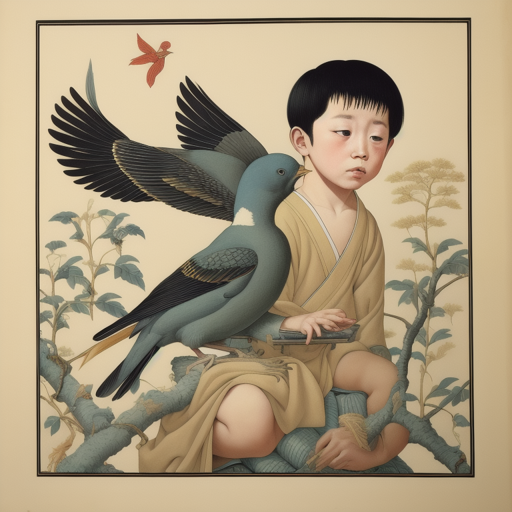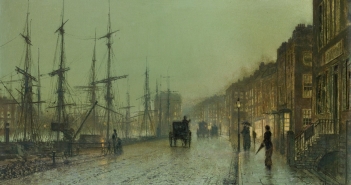The boy was wretched. He sat on the bed in shorts and T-shirt his hair a tangled mess. I noticed they had put him in a single room, the last on the corridor beside the fire escape. I examined his chart, apart from the nurse’s hourly checks no one had spoken to him since he had been admitted three days ago. I introduced myself.
‘I’m Dr Peter Philips your doctor.’
The boy looked at me. He had piercing blue eyes and an odd way of tilting his head as if he was asking a question. There was no hostility, but it was obvious he was terrified.
‘Do you hear voices?’, I asked.
He looked puzzled.
‘I mean do you hear voices other than your own in your head?’
He still didn’t seem to understand what I was asking. I tried something else.
‘Your mother said you threw yourself from an upstairs window. Were you trying to kill yourself?’
‘No, I just wasn’t ready.’
I withdrew from this cryptic comment and closed the interview.
Later that day I looked through his case notes. He was involuntarily admitted, his mother had brought him in. The duty registrar had done the paperwork noting that the boy was unwashed, and he rambled on about a bird, a pet bird maybe? He was delusional with suicidal tendencies. Normally I would move on to treatment, but something about the boy bothered me. He obviously didn’t suffer from auditory hallucinations and there was something odd about his suicide attempt. I looked at the other entries on his file. He had never been in trouble with the Guards not even a scrap on the street. His mother had been interviewed separately. She was unwilling to say too much and appeared to be overwhelmed by what was going on. She did say her son had become obsessed by birds of prey. I didn’t draw any conclusions from this I was satisfied he was delusional.
Nightfall, a nurse came into the room with a tray of medication. The boy took the pills and turned to the wall.
‘Alright Pat?’
‘Yeah’, he muttered.
The night was windy, and a twig tapped on the window, a message tap, tap, tap. A message from the trees whipped by the wind. The boy listened curiously; he tapped his knee in time. Then there was a lull in the wind and the tapping stopped. In the morning there was porridge for breakfast. The dining room was full. Pat looked around at the other patients most of them were concentrating on eating. After breakfast there wasn’t very much to do, the day gaped like a long empty corridor.
We had a team meeting the morning after I interviewed the boy. I set out the psychopharmaceutical position to murmurs of assent. There was a girl at the conference table. She introduced herself as the new occupational therapist on the ward.
‘His mother said he’s quite good at drawing. Could we provide him with paper and pens and see what he comes up with?’
I was sceptical at first, the fact that he was suicidal created all sorts of problems, but then so far, my attempts to interview him had proved unproductive so I gave her the OK on the paper and pens.
The day was slipping past, it was already afternoon, the lunch things cleared away. A smell of boiled potatoes hung limply in the air. Sunlight streaked the floor tyles and Pat let it land on his T-shirt and his legs. He felt restless as if something was boiling away inside him. He could see the sky through the high windows and a bird only a speck above the city. For a moment he felt pure joy then behind him a nurse said:
‘Time for you medication Pat.’
It was almost time for the night shift to come on duty when she came through the door. She was wearing baggy black pants and she carried a bag. The doctor he had seen the first night was with her and they stood talking at the other end of the ward. Pat looked at her carefully. Her fine red hair was clipped back in a ponytail. Then she laughed a small nervous laugh, barely parting her lips. She put her hand on the man’s shoulder and said something Pat couldn’t hear. The man pointed towards Pat, and she came over to him. When she reached him, she held out her hand:
‘My name’s Anna, I’m the ward occupational therapist. I’m told you’re interested in birds.’
Pat mumbled something. She smelled sweet like honeysuckle and her eyes were the colour of morning sky. He wanted to tell her everything, the peace, the freedom, to be up there looking down. Instead, she opened her bag and took out paper and pens. She was saying something like draw what you see, put down what you feel. He hardly heard her; he was so happy.
At first it was a tremor, a flash of light a sweeping glance across the landscape. He was fifteen when it first came over him crouched at his window ready to fly. That time it only lasted minutes, but he was already caught willing it to happen again. In his sleep he dreamt of a huge black bird that soared above the fields. He became impatient and tried jumping from the windowsill, that landed him in hospital with a broken shoulder and a fractured knee. Remembering the first time, he imagined the bird and the wind beneath him, now he could see with the bird’s eyes. He sat still in his room focusing on the breath, waiting, waiting for the flash of light. Without knowing how he knew he was ready; he opened the window, and everything was there. With raised arms, the wind rushed past his face, and he could hear rustling feathers. Nothing could stop him, his feet lifted off the sill and effortlessly he cleared the treetops, the shifting breeze carried him into the clear blue sky. He wheeled around and headed back home gracefully landing again where he had left.
The drawings were spread out on my desk. Some were remarkable pictures of birds. Others were indecipherable. I picked one up.
‘What’s this supposed to be?’
‘Well,’ Anna said tentatively. ‘At first I thought it was some kind of pattern and then I came across drone footage, and I realised it was a drawing from the air.’
‘So, he can imagine what things look like from the air?’
‘Yes, it’s amazing, isn’t it?’
‘But you’re not suggesting he can actually fly?’
Anna sank back in her chair.
‘Look our job is to treat his symptoms. He needs to take his place in society, get a job, fit in. Maybe you’re too close to him someone else can take over.’
Pat hung around the ward pretending he wasn’t waiting for anything. By lunchtime he wondered why she hadn’t come. Then it was three in the afternoon and when the ward door opened it was his mother looking anxious and distracted. They sat in his room without speaking. Eventually she took out a bottle of fruit juice and put it on his bedside locker along with sixty euros in twenty euro notes. She was crying and took him in her arms:
‘Be a good boy,’ she said.
Pat waited the excruciating hours until bedtime and still she didn’t come. In the morning at breakfast a nurse said quietly to him:
‘Dr Philips wants to see you as soon as you’re ready.’
I saw him in my office first thing. He looked tired and hung his head as I went through his notes.
‘You’ve been doing some work with Anna. She’s been transferred to another ward, from now on you’ll be dealing with Carl,’.
The boy looked shocked, and I made a note that he should be monitored carefully.
When the nurse went into Pat’s room in the morning the small window over his bed was open. There was no sign of Pat. They never found him; he couldn’t have crawled out the opening the window afforded. Dr Philips maintained the door to the fire escape must have been left unlocked. Anna asked to see the room. She looked under the bed and lying there innocently waiting to be found was a glossy black feather. She held it up to the light and admired it, then she slipped it into her bag.
Feature Image: AI Art Generator.




